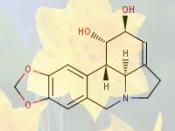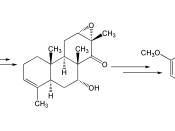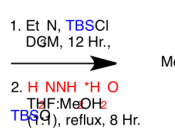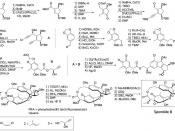From the article "Applications of Total Synthesis to Problems in Neurodegeneration: Fascinating Chemistry along the Way", the authors Rebecca M. Wilson and Samuel J. Danishefsky aim to describe the possibility of organic synthesis leading to the discovery of a treatment or cure to neurogenerative disorders. If this study of total synthesis proves to be an alternative method to the creation of medicine, it would prove incredibly valuable and convenient for further research.
In collaboration, the authors have recently launched a complete synthesis-based program directed toward the development of lead compounds of potential value in the treatment of neurogenerative disorders. The research group has identified a number of interesting natural products which hold some central nervous system activity. However, their goal is to accomplish total synthesis and to confirm the reported biological activity with synthetic material. In the past, the natural state of a product has been proven as an ineffective resource in identifying promising medications.
With that comes the challenges of isolation and purification of the compounds from their natural sources. Nonetheless, if total synthesis were made successful, it would provide opportunities to explore the unique possibilities of the innovative research.
For a type of research to "fascinate chemistry" and present potential treatment or cures to neurogenerative disorders such as Alzheimer's, Huntington's, and Parkinson's diseases, I find it pretty amazing. Science has obviously come a long way. The study of total synthesis, especially in lead compounds, is an obvious tool in the chemistry workshop. As for chemistry in the 'real world', the types of neurogenerative disorders effect a growing number of the population, and discovering treatments through synthesis could save countless lives. Although the original article, "Applications of Total Synthesis to Problems in Neurodegeneration: Fascinating Chemistry along the Way", was very wordy and a little tough to read, I feel as if the authors did an excellent job in explaining the science behind the article. However, it is my bleak comprehension of the article which makes the details hard to identify. Nonetheless, I did manage to recognize the main science of the article. Total synthesis, the identification of the individual structures of a resource and their place as a whole, allows for swift access to natural products.





